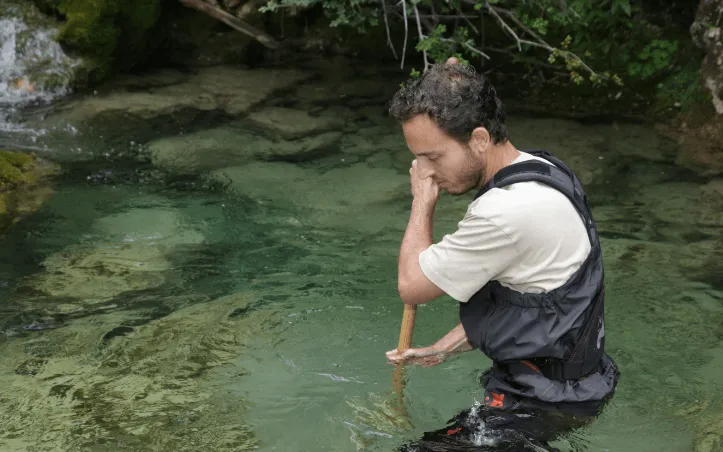
"Every day we lose around 150 species. It is easy to become alienated when the problem emerges thousands of kilometers away, but it also affects us close to home and, ultimately, we are talking about the same planet. We are all complicit"
For more than twenty years, every May 22 we celebrate the International Day of Biological Biodiversity. It is a day to remember this very romantic concept that is often used to claim its importance with all kinds of activities. The problem lies in the fact that its status as a "trending topic" is ephemeral and, even worse, also misinterpreted.
Indeed, biodiversity is fascinating. The chaotic genetics dances hand in hand with severe natural selection and explodes in a mural of creativity adopting infinite shapes, colors and behaviors that push survival strategies to the limit in the most inhospitable corners of the planet. But the importance of biodiversity is not merely aesthetic.
While it is true that all the reasons for international and world days are very important, biodiversity deserves much more than a day because biodiversity is everything. Biodiversity gives us oxygen, food, clothes and countless other ecosystem services. But not one day a year, but every day, every second. Biodiversity is everything to us and we are even a part of it, but instead we, the most intelligent and powerful species to ever exist on the planet,
Slaves to an insatiable greed, eight billion human beings destroy habitats, introduce invasive alien species, including diseases, pollute the air, soil and water, and overexploit natural resources. Unfortunately, our limited perspective does not allow us to realize the magnitude of the tragedy. Little by little, with each of our daily actions, we collaborate, ignorantly, in the destruction of nature to the extent that every day we lose about 150 species.
Yes, every day. It is easy to become alienated when the problem emerges thousands of kilometers away, but it also affects us close to home and, ultimately, we are talking about the same planet. We are all complicit.
We can continue to look the other way, but one day not too far off we will miss some important species. What will happen if one day the bees disappear? Or the frogs? Or turtles? Or bats? It could happen. There are real risks right now. By then it will be too late. We will not destroy the planet and the human species will not disappear either, but we will suffer.
Conversely, you can analyze your habits. What you eat, what you wear, how you move, how you have fun... All your actions have a negative impact on biodiversity. This is inevitable, but you can make this impact minimal. To begin with, there are attitudes that are intolerable and must be eradicated immediately, such as dumping waste in natural spaces or, also, in urban areas, releasing exotic animals and plants, wasting water and food, throwing away wet wipes, and other solid waste in the toilet, etc.
Common sense things that many people still don't understand. Possibly out of ignorance but often also out of indifference, because people have other more immediate concerns or because they don't value their own lives at all. This is the most difficult group to raise awareness of and which perhaps, sadly, will only react to sanctions. Or maybe not even with that.
But if you want, you can go much further. It's not that difficult. If you really care about the future of biodiversity, your planet, and your own well-being, there's a lot more you can do. The first guideline is to avoid consumerism. Before you buy anything, consider whether you really need it, whether it will improve your quality of life, and think about how it might have been achieved. How much land has been destroyed, how much water has been consumed, how much carbon dioxide has been produced, how many trees have been cut down, how many animals have been killed...
Second, watch what you eat. eat healthy We don't have to stop eating meat, but we can't continue with the quantity, quality or cruelty of today. Eating it a couple or three days a week is enough. Remember that sausages and other derivatives also count. Look for organic and local products whenever you can. Then get around on foot or by bike whenever possible. Avoid cars, motorbikes and electric scooters as much as possible, even if they say they are ecological.
And if you want to go even further, get wet. Get involved in conservation projects. In our country there are many organizations that work tirelessly for the conservation of biodiversity every day. Your input can be key.



Add new comment